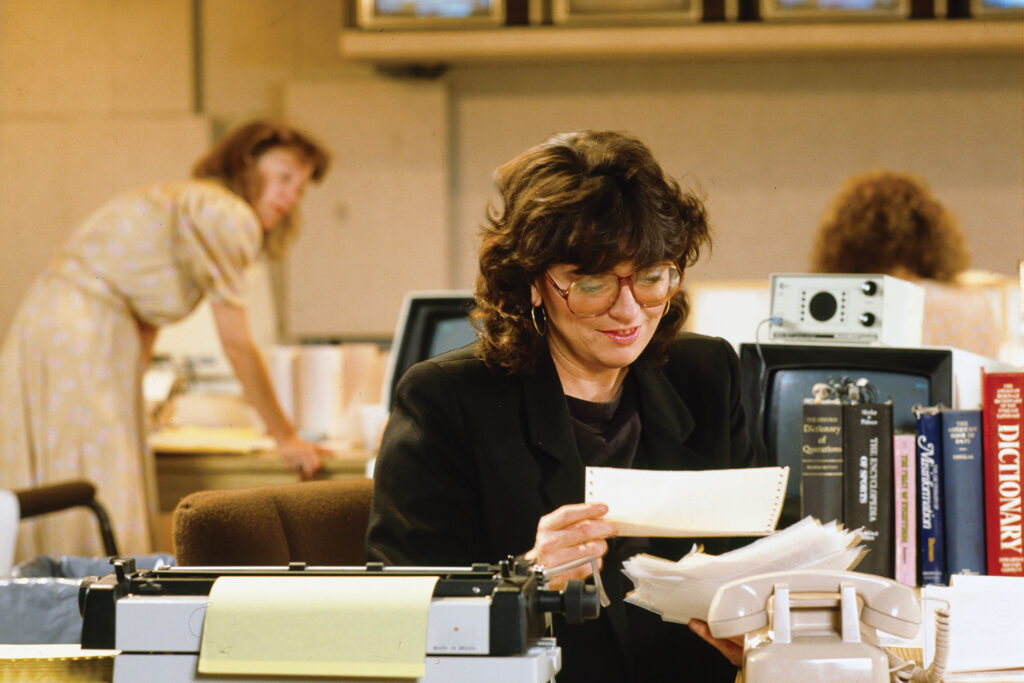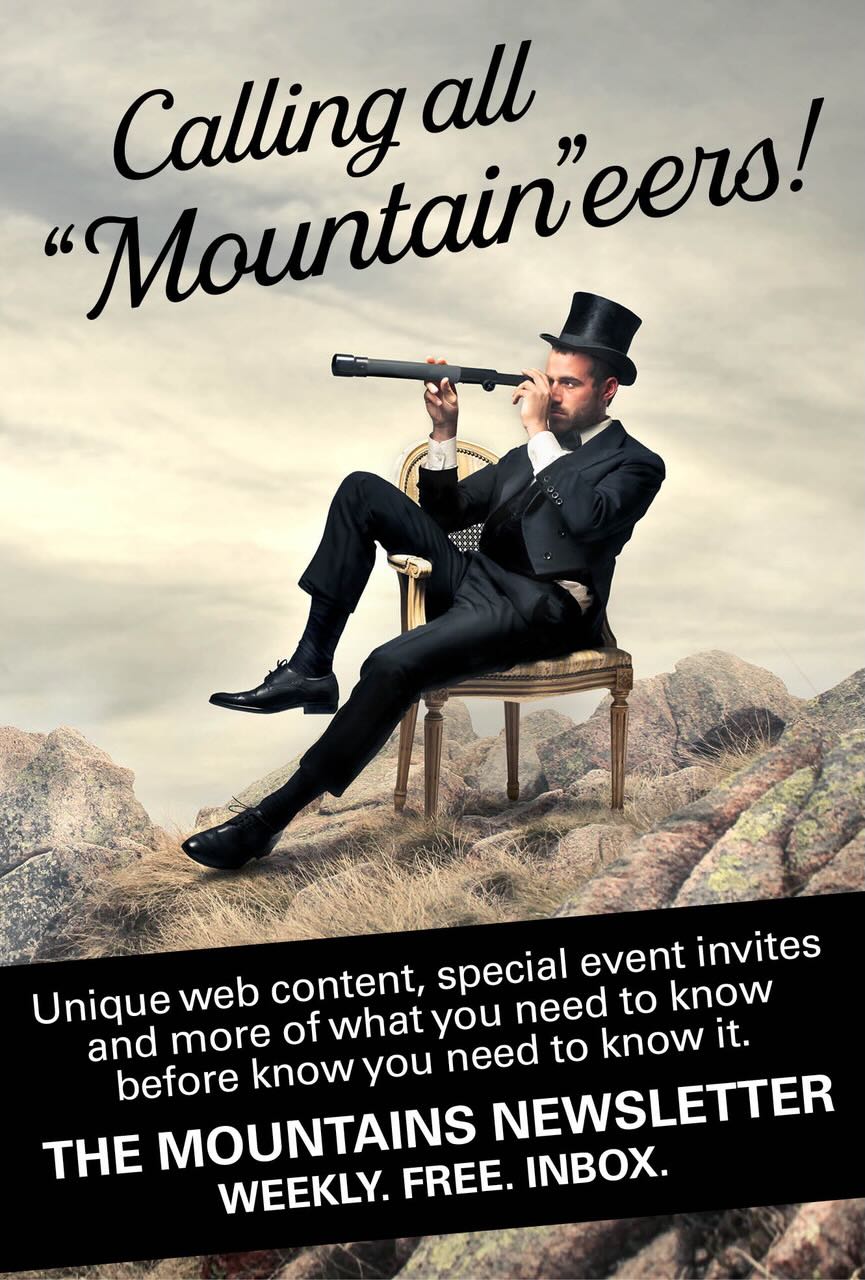Great news! In conversation with the smart, tough, honest news OG.
By Hal Rubenstein
Almost four decades ago, I was a contributing editor to Interview magazine. I’m also an insomniac. Consequently, I routinely wrote at night and went to bed late. That is, until NBC launched a live hour-long program called Overnight at 1:30am, and then I went to bed even later. Overnight may be the smartest television news hour ever produced, because it did what other newscasts didn’t. It assumed by this time of the evening/morning you already knew what had happened that day. Overnight zeroed in on the why and how certain events had transpired, delivering enlightening and sometimes revelatory, in-depth stories with clarity, passion and just enough humor or irony to sustain interest.
However, Overnight’s most galvanizing facet was the woman delivering the news. Co-hosting with colleague and friend Lloyd Dobyns, Linda Ellerbee didn’t sound, look or behave like any newsperson I’d ever seen on the air. She wasn’t blonde. She wasn’t girlishly decked out in a boatneck sheath with demure false eyelashes. And she sure as hell didn’t read the news with the then customary opinion-free, oh-you-know lilt in her voice designed to soften the blow of international conflicts and domestic disasters.
Ellerbee boasts a strong, declarative Texas twanged alto, abetted by a wry salty edge and just enough rasp to imagine her singing jazz in a cocktail lounge. Her button-down shirts and crew neck sweaters may have denied the viewer one more distaff reporter on display as eye candy, but her forthright delivery and wicked smarts, combined with the realization that she wasn’t just reading the copy but was personally invested in telling these stories, made for riveting television. I couldn’t take my eyes off her. When the show’s run ended, Ellerbee published her first book, an instant bestseller, whose title was lifted from her trademark sign-off—And So It Goes. I had to interview her.
Despite all the bold-faced names I’ve sat down with over the years, I rarely, if ever, feel the need to continue the conversation once I’ve said my goodbyes. But speaking with Ellerbee was as invigorating as cannonballing into a freshwater mountain stream in August. I left her so turbo-charged and wide-eyed I could feel wind against my corneas. l also left Linda kicking myself for not giving her my number or getting hers in hopes of seeing her again. Two months later, just as the article was coming out in Interview, we unexpectedly met again at a cocktail party on a boat. To my delight, the feeling was mutual. We’ve been close friends ever since.
After Ellerbee left the major networks, she made an unplanned sharp left, started her own production company, created, co-produced (along with her life partner, Rolfe Tessem), wrote and hosted Nick News, the groundbreaking program for kids that was the first to tackle such formerly taboo subjects as racism, war, homophobia, AIDS, physical disabilities and our legal system (in light of recent events, maybe everyone should watch that episode), winning a second coveted Peabody Award to go alongside a shelfful of Emmys.
After more than four decades in television, Ellerbee and Tessem retired in 2015, spending half the year at their rambling home in Egremont, MA and the other half in her condo in Puerto Vallarta, México. It’s impossible to ignore the timing of our meeting, which occurred on Monday, November 4, 2024, less than 24 hours before Election Day, so the banter wasn’t as quicksilver clever as usual, because there was literally an orange elephant in the room.
There are so many talking heads on TV these days, everybody analyzing, theorizing, criticizing and hypothesizing. You aren’t one to hold your tongue. How come you haven’t tossed in your two cents, or considering inflation, your nickel’s worth?
I do get asked to be on talk shows, but I don’t think I have anything to say that I haven’t already heard.
Do you miss being on television?
To me, it was never about being on camera. It was about making good television. I remember in school I loved geography. We had to present personal notebooks by reading what we’d written out loud in front of the class. I loved putting together my notebook on geography. Researching, collating, assembling into one cohesive package. But I hated standing in front of the room and though I grew up, my attitude didn’t really change. I loved shooting television, writing and editing it, but being on TV was just like reading the news out loud in class. Obviously, I got better at it, or no one would have seen what I had done.
You started in local news in Houston and then came to New York City to be an NBC correspondent. What do you think made Overnight genuinely stand out from other newscasts?
Well, first of all, it was a damn good news show. But some of it was the timing. Turned out we had a built-in audience of people who worked nights—rock stars, Broadway actors, waiters, hospital workers—people coming off the late shift don’t go right to sleep when they get home. The way someone who’s a bank teller got home at six and watched Dan Rather, we were the alternative for night workers. But Frank Zappa (brilliant musician and creator of The Mothers Of Invention) called me every night after the show. Sammy Davis, Jr. would call once a week. Graham Nash called frequently. Overnight is how I got to know the Grateful Dead. They were devoted viewers. The shame is that during the ’80s the Nielsen boxes that noted rating would turn off at 11pm. So, there was no way of measuring our impact and popularity.
It was notable that Overnight’s features were as compelling to watch as to hear.
Reuven Frank, the president of NBC News, and a brilliant mentor, described journalism and TV journalism best. Writing, he said, is an arrangement of idea. But then he told me to turn on the news and then walk out of the room so that I can still hear it while doing something else. If I could fully understand what the broadcaster was talking about solely based on the narrative, there was a word for that: Radio. TV, however, should seek out and provide the visuals when there are no words that can describe it.
Do you think those anchors on the air now follow this ethos?
I haven’t watched an evening newscast since 2016. If I merely want to know what they’re saying I can read about it. There’s no reason to watch the news if you’re just going to talk. Why did January 6 have such lasting impact? It was covered in a variety of ways but there was one constant. There was the video. And we all saw it. That may be the last time as Americans we came close to agreeing on the facts because you couldn’t deny the visual. Soon after, the facts wouldn’t stay still. Anyone who had anything to say, said it.
















Comments are closed.